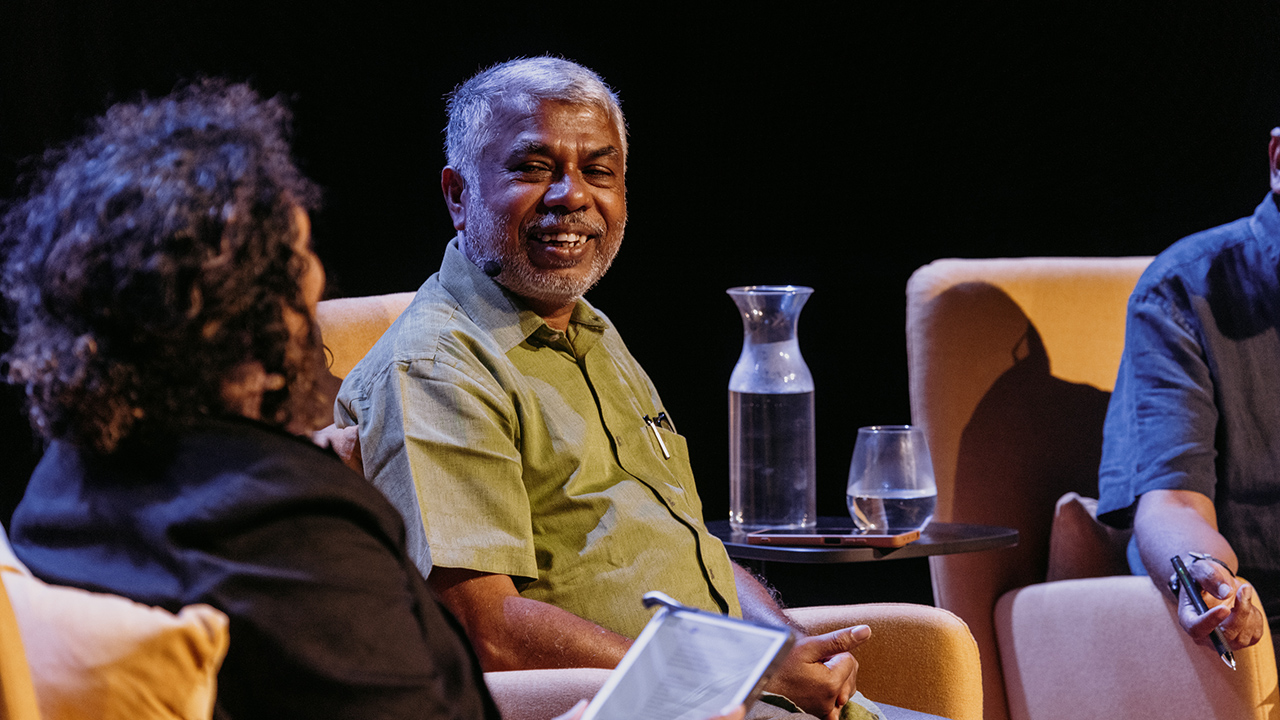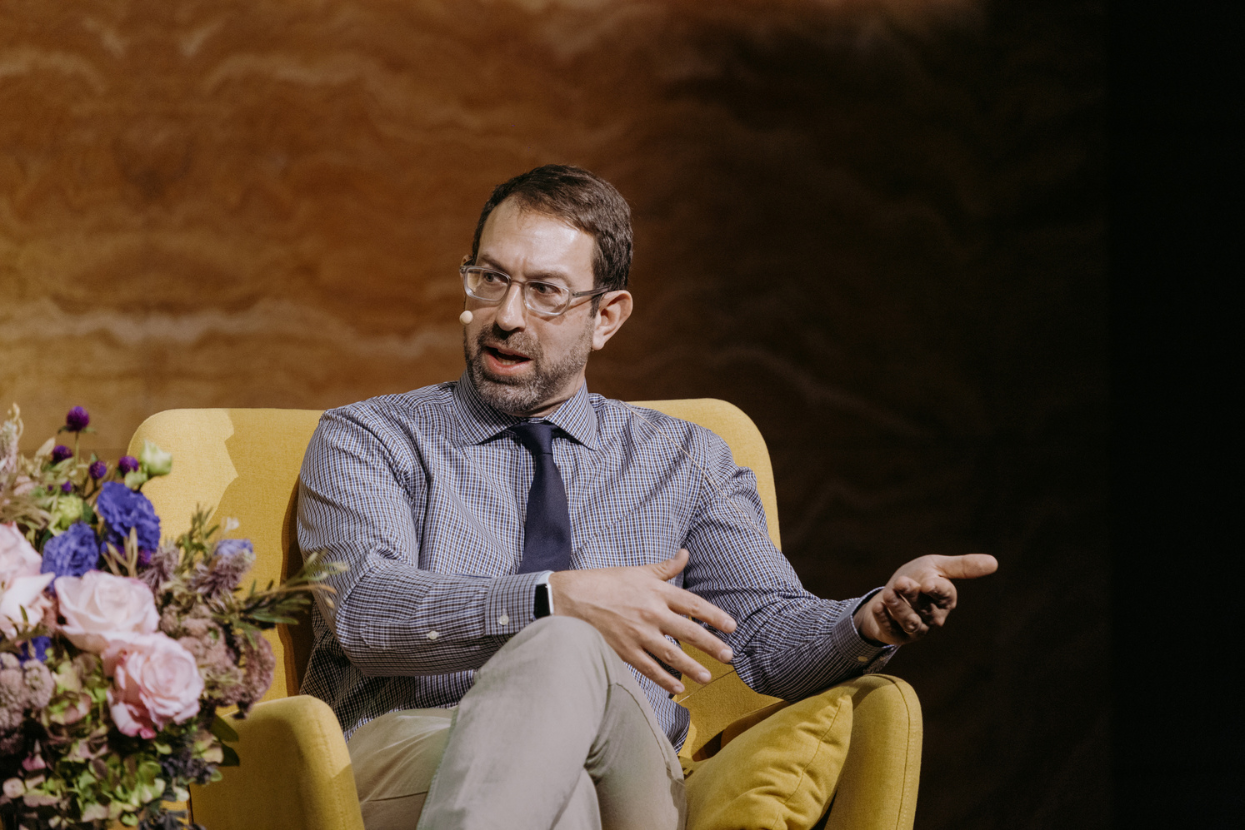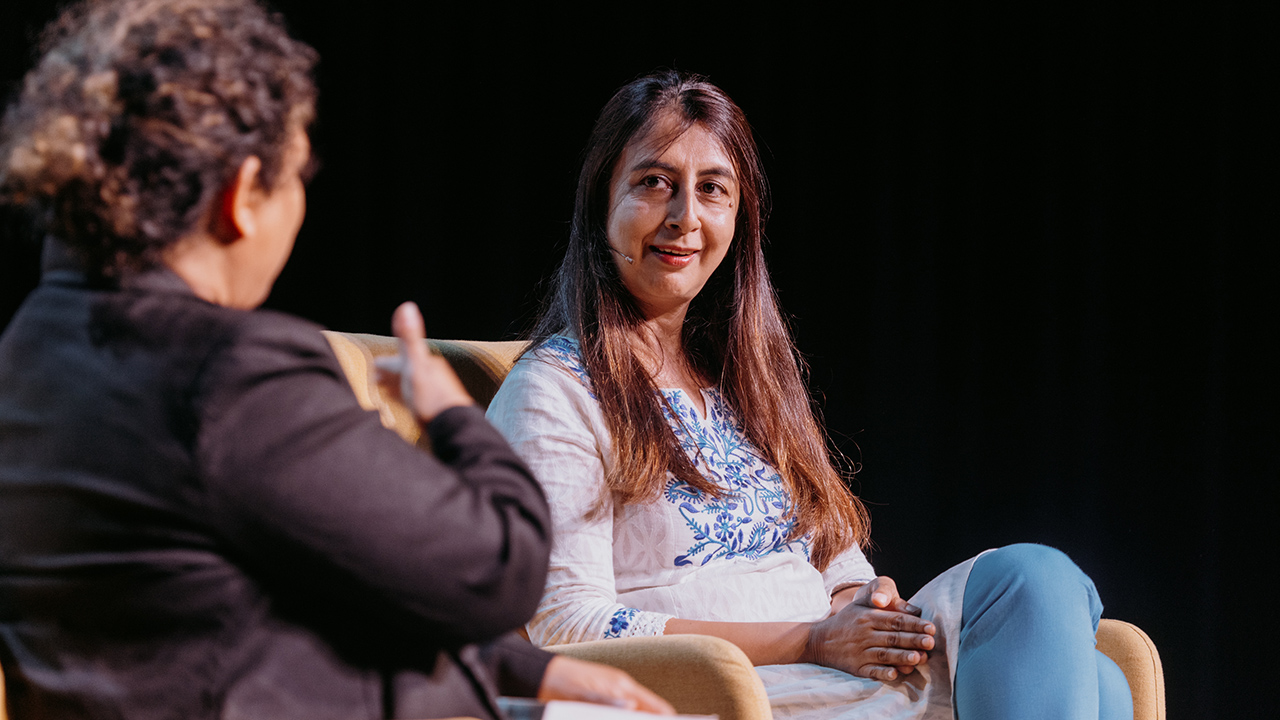Peter Frankopan: The Earth Transformed
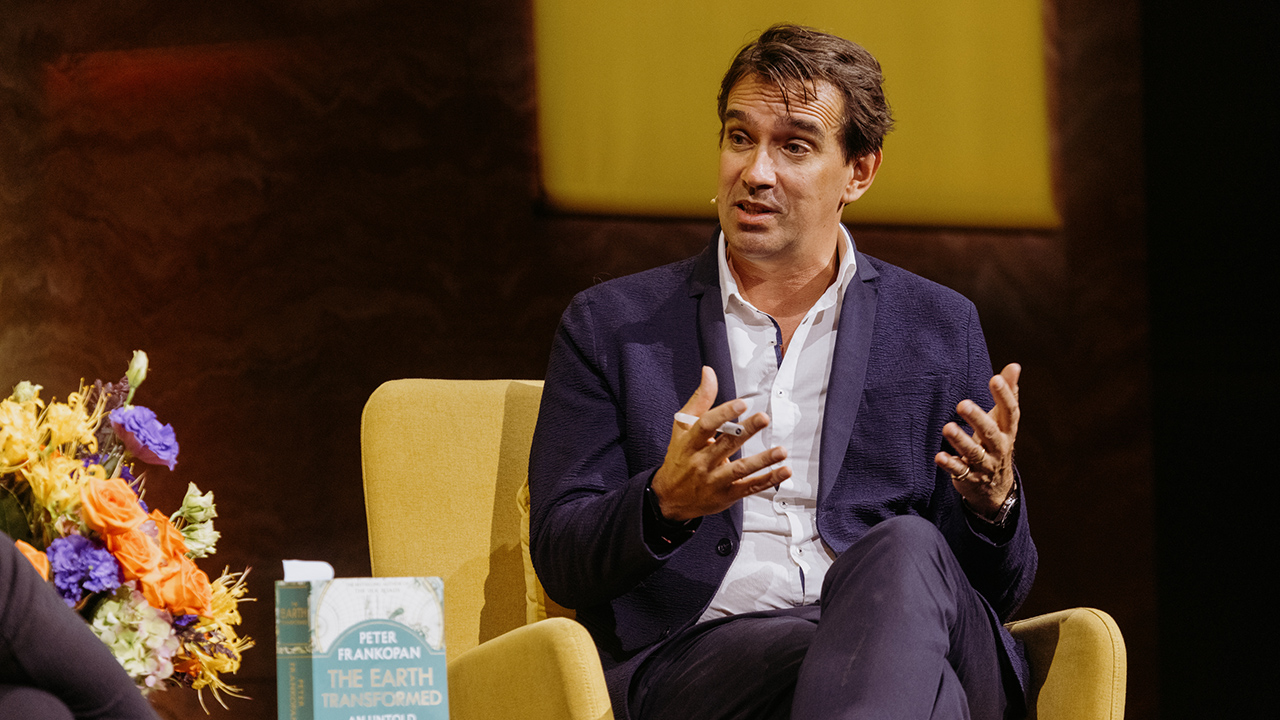
Twelve years ago, there were 44 liberal democracies on Earth. Today that number has gone down to 32. We're living in a world where rights are being taken away... That should scare us all in terms of how we use our voices to encourage and inspire change.
Human existence has always been bound with the health of our natural world. What can we learn from how a changing climate has already, for centuries, dramatically shaped the development and demise of civilisations across time?
In the 2024 Gandhi Oration, renowned historian and author Peter Frankopan unraveled the historical narrative, framing the natural environment as the crucial factor impacting humankind.
Following his solo address, Frankopan joined UNSW Sydney historian Alison Bashford to discuss how we can reshape our understanding of climate change and inspire a collective commitment to a sustainable and just future.
ABOUT THE GANDHI ORATION
Since 2012, UNSW Sydney has hosted the annual Gandhi Oration celebrating the legacy of Mahatma Gandhi as a champion of human rights. The Oration features discussions on the significant human rights issues of our time. Past speakers have included Senator Pat Dodson, Peter Greste, Pat Anderson, Shoma Chaudhury, Reverend Tim Costello, Rosie Batty and Shen Narayanasamy.
Presented by the UNSW Centre for Ideas, and supported by Adelaide Writers’ Week and The Wheeler Centre.
Transcript
UNSW Centre for Ideas: UNSW Centre for Ideas.
Alison Bashford: Well, good evening, everybody. I’d like to start by acknowledging the Bidjigal people who are the traditional custodians of this land, and I'd also like to pay my respects to their elders past and present. And I extend that respect to other Aboriginal and Torres Strait Islanders who are here with us tonight.
And I'd also like to welcome and acknowledge the representatives from the Indian Consulate here in Sydney who are with us, and also Mr. Amit Dasgupta, former Consul General of India and currently Senior Strategic Advisor on India Engagement to New UNSW. My name is Alison Bashford and I am a historian here at UNSW and I’m also Director of the Centre for History and Population.
Every year, as you know, UNSW, who hosts the Gandhi Oration to celebrate the legacy of Mahatma Gandhi as a champion of human rights and invite global thought leaders to discuss significant human rights issues of our time.
And it's with great pleasure, with particular pleasure for a whole range of reasons to welcome tonight the Gandhi Oration lecturer Professor Peter Frankopan.
I'm sure all of you can picture his books, those stunning stellar jackets that Bloomsbury have done and I'm sure there are many shelves of everybody here tonight in those books
Peter Frankopan tells especially large stories. They're, in my view, enchanting stories. They're pressing stories and they combine scale, the biggest scale one can imagine, the biggest scale really, we can write about. They combine that with precision, and they combine knowledge of distant times and recent times and places which are often as remote from each other as they are from us.
And it really is a rare talent and particular skill to pull these things together so, so carefully with such research capacity and with such research integrity as well. Peter Frankopan is Professor of Global History at the University of Oxford and Senior Research Fellow at Worcester College, Oxford.
Many of you here, I'm sure, will have read his masterpiece, his first masterpiece I should say, The Silk Roads: A New History of the World, and that was published by Bloomsbury in 2015. And The Silk Roads was number one Sunday Times bestseller. And it stayed there, I understand, for many months. The New Silk Roads: The Present and Future of the World was published by Bloomsbury in 2018. Well, Peter Frankopan’s current book, his new book is The Earth Transformed, and it tells the largest story of all across time and across the oceans and continents that constitute our planet. But I suspect we'll hear of this tonight. Certainly you will read of it in the book when you buy it. It is not just about oceans and continents or even just about humans.
It turns out that this is a history of atmospheres, hydrospheres, lithosphere is biospheres, their impact on us as humans, and especially our impact on them. It's with great pleasure that I ask you to join me to welcome Peter Frankopan to deliver the 2024 Gandhi Oration.
Peter Frankopan: Oh, I can feel my heart beating rather fast, being introduced by one of the world's great historians in our hometown on the home campus. If I wasn't nervous before, I'm terrified now. I'm hugely grateful for the kind invitation to come and speak to you tonight. And thank you all for giving up your Wednesday evening to come and hear me.
I've got 20 minutes. My clock hasn't started yet, so this is free time, but got there it goes. But I will do my best to talk about Gandhi, human rights and The Earth Transformed, the Earth's being transformed. So as any good diligent historian would do, following in the line of the wonderful lectures you've had - it's a great honour to be now the 2024 deliverer of the Gandhi Oration - I wanted to know how Mahatma Gandhi has been received here in Australia. And of course, the first time that he appeared on the radar of people living in Australia.
And that was, I think I have hopefully the primary sources. Here we go. The first reference we find to Mahatma Gandhi was in 1897 in the Sydney Evening News, a time when Gandhi was preoccupied about equalities and about rights, about removing prejudices. And of course that fell on very fertile grounds here in Australia. I have another interview with Mr. Gandhi in 1907 because at that time identities in Australia who would have the right to equalities was a live discussion, in particular leading up towards the Commonwealth Franchise Act of 1902 that made women the first in Australia to be able to vote anywhere on earth.
And then there's questions about who should be included and be enfranchised and empowered is one that went deep and long into the 20th century here in Australia. So thinking about how Gandhi was an advocate for change through passive means to try to overcome, to win the ‘sympathy of the colonials’, as he called it, and how to encourage change of behaviour through inspiration seems to be a very important thing when we're faced with a climatic world we live in today.
So I could be here to talk about any number of different things, but I suppose a theme would probably be how we're living through an age of revolutions. We are living through an age of militarisation, of human oppression, of economic centres, of the shifting of economic centres, of gravity, of demographics and migrations already in large numbers, and which will grow of information, control of new technologies.
And the two things I'm going to talk about tonight; the age of revolution, of global climates, but also in the natural environments, and some headlines which you will all know because you wouldn't be here otherwise, the level of change that we're living through today in the world globally is unprecedented, both in its speed and in its scale. So since 1970, we've lost around 70% of vertebrates.
The numbers of birds down, measuring in their billions, the cascading erosion of biodiversity mean that scientists - this is produced in a paper in 2021 - the scale of the threats to the biosphere and all its lifeforms, including humanity, is in fact so great that it's difficult to grasp, even for well-informed experts. Some scientists are saying that the rate of cascading biodiversity collapse, at the moment, is the greatest that it's ever been, including the five previous mass extinctions of which the most famous one, and the most Hollywood friendly, the Chicxulub comet strike that hit the Earth 66 million years ago and got rid of the dinosaurs.
The fact that we are moving through loss of species faster than that should make us all stop and think about what we should be doing about that. So my theme today is about Earth being transformed in lots of different ways, and I'll give a quick overview of some of the things that you will all be thinking about. One is that we ended 2023 with more conflicts anywhere on Earth than any point since the 19.. beginning of the 1990s.
183 conflicts, some inter-state, some between states and I don't need to enumerate which ones of those are the most dramatic. We've had more journalists put into prison than ever before, including not just women, the most women, but with the longest sentences as well. Persecutions of religions, of intolerance around freedoms of speech are cascading downwards everywhere.
We see rises of autocracy. We are living in a world that, since 2016 has become significantly less free year after year after year. We see the falls of liberal democracies and the falls of the number of people who live in liberal democracies. In 2016, about 4 billion, 3.9 billion people had the rights to vote. Today that's come down to 2.3 billion living in full-fledged democracies, democratic systems in 2014.
12 years ago, there were 44 liberal democracies on Earth. Today that number has gone down to 32 - and rights, if you want to talk about Gandhi, we're living in a world where rights are being taken away rather than being granted and given. That should scare us all in terms of how we use our voices to encourage and inspire change.
Because those of us who are trying to do that look like we're doing things either not strongly enough or things are going in the opposite directions. Now I'm here to talk primarily about climate and environment. So here's how the world actually looks. We have a world that has its warmest temperatures recorded not just in human history, but for the last 125,000 years.
The scale of change is not just breaking records, it's shattering them. When we look at some of those different ways of hydro spheres, lithosphere and so on that Professor Bashford talked about, we see the scale of this of dramatic change in a way that's almost incomprehensible from ocean temperature rises. We have the highest temperature in the oceans recorded off the coast of Florida last year, about the same temperature as a hot tub, 38 degrees centigrade.
We've had five sigma, so five standard deviations away from normal, Antarctic ice loss where last year ice cover was 2.4 million square kilometres lower than it would normally be measured between 1980 and 2010. Five sigmas means the chance of that happening by fluke, are one in 7.5 million. We've seen the amount of heat absorbed by the oceans measurable on scales that are almost unquantifiable. Since the year I was born in 1971, the oceans alone have absorbed about 400 zettajoules of heat.
Now some of you will remember from your science, your maths what a zettajoules is… Anybody? I'm not going to point to you ask you. Does anybody know how much a zettajoules is? Well, I'll give you a clue. And 2022, just in the course of 12 months, the oceans absorb ten zettajoules, which is a lot less than 400.
Ten zettajoules is enough energy to boil 700 million kettles every single second, every single minute of every hour of every day of every week of the year. That’s a lot. And when you start to change the world around you, when you transform it by choice, which is what our species are doing, you have all sorts of other knock on effects.
So the ways in which we've used fossil fuels, the ways in which we have seen global temperatures rise as a result of the ways which we've chosen to live for all sorts of reasons, we're seeing the types of change that are not just unprecedented, but cataclysmic. So here in the classic 2023 State of Climate Report, I've lit up in yellow two sentences, which I wonder what Gandhi would say.
“Life on planet Earth is under siege. We're now in uncharted territory.” And then the final line: “We're entering an unfamiliar domain regarding our climate crisis, a situation that no one has ever witnessed firsthand in the history of humanity.”
And that is not humanity starting with the pyramids. That's humanity starting three, four, 500,000 years ago. So what does that mean for human rights? What does that mean for our futures? I'll come to that in a moment. Most attention, perhaps not surprisingly, in the press and elsewhere, it's focused on global warming and on heat. But that is not the only thing that we are doing. Because of the way which we choose to use our plastics, there are an estimated 270 trillion microplastic particles in the oceans and that sounds like a very large number, s o I'll make that more accessible too. That turns out to be about 40 microplastics in every cubic meter of ocean water on earth, which we find standardised, including the Arctic Ocean, which is a long way from here, and the Antarctic and South oceans as well.
We know that every single - in a report produced at the end of last week - every single placenta of a mother who has given birth measured, shows microplastic particles. We all breathe this every day because of how we live. The WHO estimates that 4.5 trillion cigarette butts are discarded every 12 months and between 75% and 99% of those are discarded on the ground where they leave toxic imprints, particularly on soils, which is not something that anybody would want to think of doing if they were thinking straight.
We've overfished our oceans to the point that 90% are either fully fished or overfished. We've depleted our groundwater to the point that in places like northern India, it's estimated that groundwater depletion in the northern Indian plains has moved the position of the North and the South Pole. Our inefficiencies in how we consume mean for around 70% of all human produced energy is produced, produces waste, heat wastes.
So we don't even get the benefits of all of the things that we do to try to make ourselves warmer, smarter, cleaner and more connected. One in four of every single animal that is bred for the dinner table doesn't make it to the plate, it’s just wasted. And then we see air pollutions, in places like Sydney, you're doing pretty well. It’d be much better if I tested your air quality today and said you have bad news, Sydney's not doing too badly, but 496 of the 500 most polluted cities are in Asia. And in all of those cases, in all of those cities, that has a measurable impact not just on cognition and on health outcomes but measurable outcomes on life expectancies.
In some cities in India, that means 8 to 9 years lower level of life expectancy than if people were breathing air quality that met World Health Organisation standards. And to give an idea that this is a global problem, 99.9% of the population of Southeast Asia breathe unhealthy air. And the ways in which we have failed to tackle clean air means that there are only six countries on this planet that currently have air quality that meets WHO safe standards.
On top of all of that, it's the way in which we choose to treat each other means that apart from acts of genocide and of intolerance and of mass killing of civilians, we've also decided to use the environment as a way of waging wars. And there is a strong movement now to make ecocide a classified as a war crime, deliberate attempts to damage your enemies or your rivals’ land.
And that goes back a long way in history from olive trees being chopped down in the Peloponnesian Wars to the Norman Conquest. If you are on this side of the earth, interested in the Norman Conquest, the harrowing of the North and the deliberate setting fire to crops to impoverish and hurt civilian people, to force them into their normal settings.
Now, if you are a historian like I am, you might want to think about how we have come to the point where we are talking about civilisational collapse, biodiversity collapse and cascading problems that are coming towards us. How did we go into a world where we find ourselves in 2024 and not just anxious and stressed, but very concerned, too worried about what might happen next?
Well, we can't say that we weren't warned. Some of the very first texts ever written down by our common human ancestors are all about trying to regulate land ownership and water rights. Some of that is to do with creating hierarchies. But if we go back to origin stories here of Indigenous populations in the Bible and the Book of Genesis and the Torah and the Quran in Mesoamerican belief systems as well, almost all Christian stories have at the centre, point to the environmental message about respect for the natural world, about sustainability and of morality, of living in accordance with either the creator's instructions, or to treat treating the natural world with respect.
And in most of these cases, transgressions results in environmental punishments. In the case of Judaism, Christianity and Islam, the three largest Abrahamic faiths, they push towards the story of, say, the Adam and Eve by being expelled from the Garden of Eden, where you didn't worry about what you… didn't have to worry about growing crops. You didn't have to put on suncream. Everything was just perfect.
The punishment was an ecological one where humans had to scramble in the dust. They had to fear floods, they had to fear droughts. All the concerns about the ways in which extreme weather events scarred different civilizations and peoples and histories from people living in cities to mobile hunter gatherers from mobile populations. The ways in which everyone has tried to engage, to understand about the… how precarious environmental envelopes are is something that has been one of the great themes in global history, regardless of region period, or ways in which histories have been recorded, whether written down or oral otherwise.
The great irony, of course, is that those peoples were not the masters of their own destiny. They were not the people who had deliberately - undeliberate and unintentionally - destroyed the world around them. We're the only animal that has worked out how to completely scavenge and ruin its own ecosystem to its own detriment. The only animal that over eats only so we can go to the gym to exercise.
A lot of the fact that the ways in which we have opened up these worlds are nothing to do with our own ingenuity, that to do with the locations of fossil fuels or metals of uranium's rare earths that have got nothing to do with the ecological lottery that any human has won.
It just so happens that this is what has been baked in by previous climatic events, long periods spanning over millions, in some cases tens and hundreds of millions of years of forming of hydrocarbon basins, metal deposits and so on. But we have chosen to exploit those in ways that are to our own detriment. And of course, these have real consequences.
I will cheer you up I promise, in our discussion. I'll give you a set of what these mean for human rights. So for every single degree centigrade increase, we have above 30 degrees cases of domestic and sexual violence rise by 6%. For every degree above 32 degrees centigrade in un-air conditioned schools, performance fall by 1% per week. So if you are in an unequal world where you are in a school where the air conditioning either doesn't exist or doesn't function properly, the day in which you sit, your exams will be determined… your outcomes will be determined by the ambient air temperature outside.
We had a publication this week… I've been looking for University New South Wales... I will come to you in a moment. I promise, but by the University of Western Australia about the impacts of climatic changes on incidence of pre-term infant births. The earlier born before term of 40 weeks, the more likely you are to have long term health outcomes that are negative or compromised. The warming world means a world that is more unequal to the next generations.
We know that contraception and condoms don't function if they're stored above 30 degrees centigrade. So if your pharmacist doesn't have air conditioning or the air conditioning doesn't work, the levels of unwanted pregnancies will rise as well. Disease environments. Likewise, in the process of changing. The coronavirus that we had to live through a few years ago, which feels like part of the distant past, is something which we should be learning those very important lessons from history.
So the changing world of climate of environmental change is one that puts pressure on human rights. And we know that because extreme weather events, and we have lots of data about this, shows that it forces centralisation by making the state more powerful. And when states become more powerful, rights almost always disappear downwards.
Small states, places that are more exposed are much more likely to tend towards autocratic systems after extreme events because of the need to respond to unexpected high levels of poverty or rebuilding processes that require intervention at government level.
Bigger states, bigger countries, bigger territories have generally more resilience, but that doesn't always necessarily apply too. So when we live in a world where, you know, here in Australia and Sydney, just in the last three or four years, the extent of forest fires in 2019 to 2020, that didn't just kill a billion animals here in Australia and make you breathe the air is dangerous for you to have taken through and into your cardiovascular systems and into your lungs, changed the outcomes of rainfall patterns in Africa. We're all in this somehow one way or another together.
So the challenge of a world that is changing, I think, demands answers. And while reading about Gandhi, I looked very closely at his correspondence with Leo Tolstoy, the great Russian novelist who Gandhi got in touch with in 1909 to talk about methods of nonviolent resistance of how to change the world for the better.
And Tolstoy's correspondence with Gandhi went to multiple letters where Tolstoy encouraged Gandhi to think in terms of love and hope, to think in ways of how to change the world for the better through inspiration and through learning. Some of us do what we can. Here at the University of New South Wales you have one of the biggest climate research centres in Australia, in the southern hemisphere.
Some of us think that the way to try and make the world a better place is by educating the next generation so they know what the reality is of the world around them. For everybody else who’s here tonight. The two tools we can use, of which I'm sure Gandhi would approve, is to use your voice and your votes to agitate for change.
Thank you very much.
UNSW Centre for Ideas: Thanks for listening. For more information, visit centreforideas.com. And don't forget to subscribe wherever you get your podcasts.
-
1/4
Peter Frankopan
-
2/4
Alison Bashford and Peter Frankopan in conversation
-
3/4
Audience at Peter Frankopan: The Earth Transformed
-
4/4
Peter Frankopan signing books
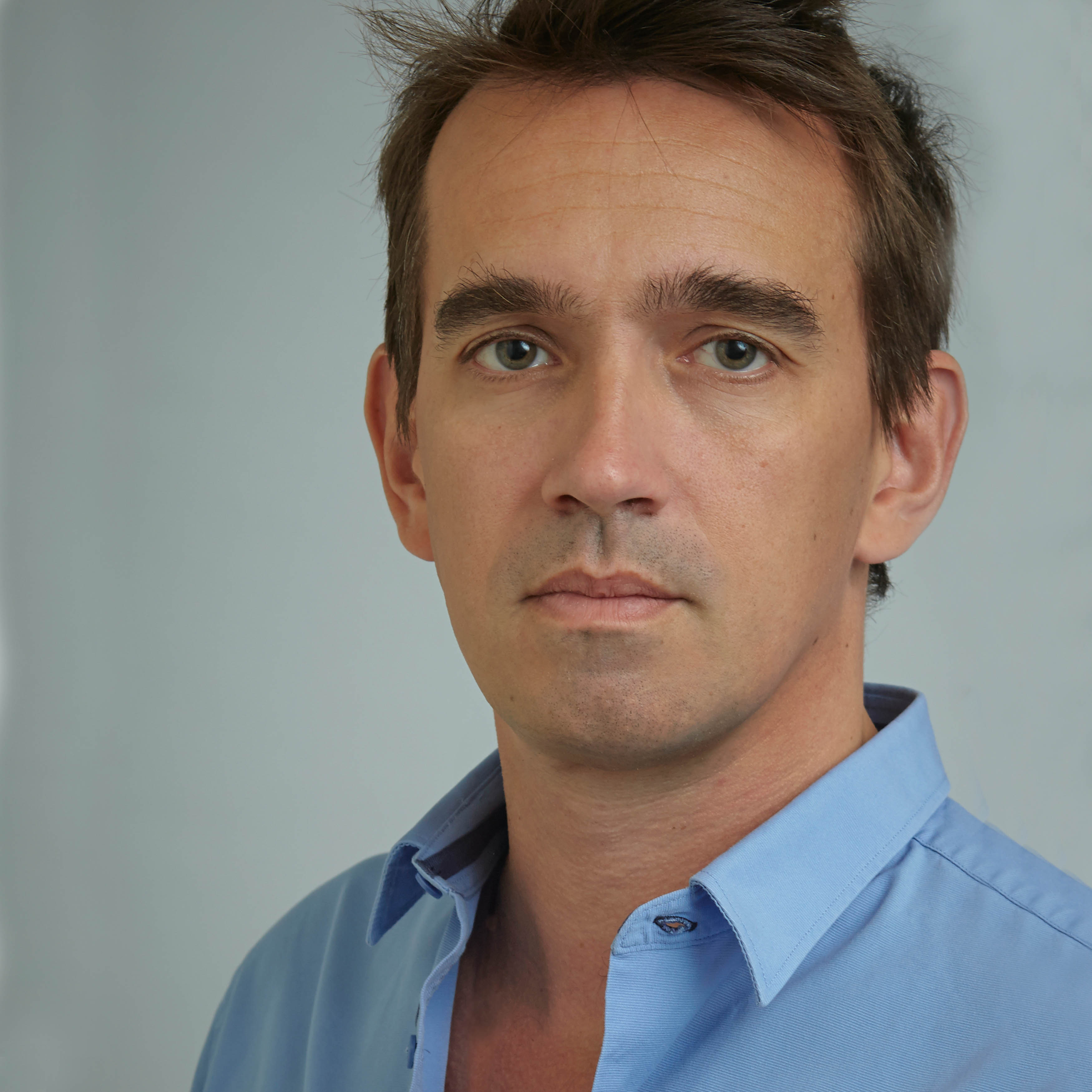
Peter Frankopan
Peter Frankopan is Professor of Global History at Oxford University and Senior Research Fellow at Worcester College, Oxford. The Silk Roads: A New History of the World, published by Bloomsbury in 2015, was a No. 1 Sunday Times bestseller and remained in the top 10 for nine months after publication. It was named one of the ‘Books of the Decade’ 2010–2020 by the Sunday Times. The New Silk Roads: The Present and Future of the World was published by Bloomsbury in 2018 and won the Human Sciences prize of the Carical Foundation in 2019.

Alison Bashford
Alison Bashford FBA FAHA is Scientia Professor of History at UNSW, and Director of the Laureate Centre for History & Population. Previously she was Vere Harmsworth Professor of Imperial and Naval History at Cambridge. An historian of modern sciences and of environmental history, her most recent book is The Huxleys: An Intimate History of Evolution (Allen Lane, 2022), winner of the Nib Literary Award, and shortlisted for the Cundill History Prize.

